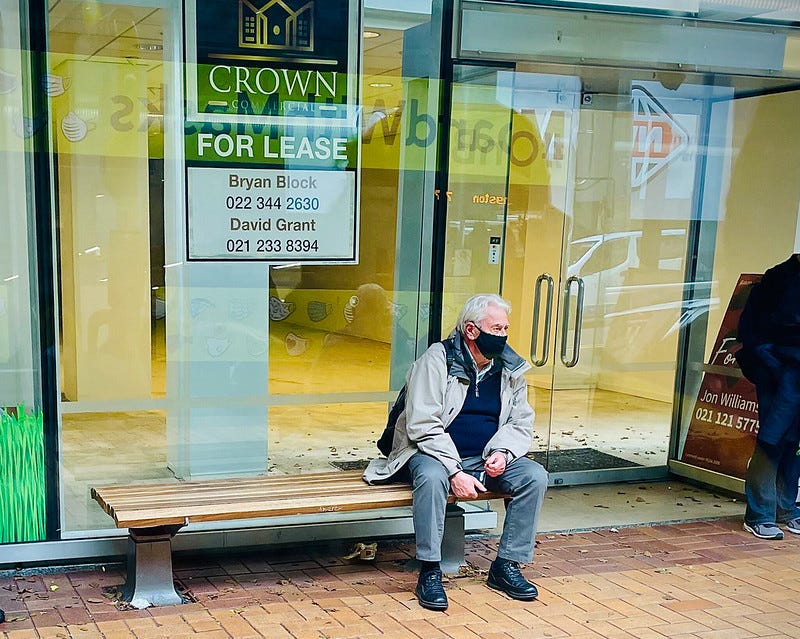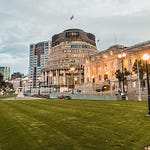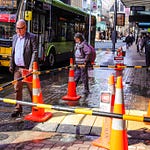TLDR & TLDL: Pfizer is sending another 1m doses our way next month, but the vaccination plan keeps being nudged further back into the second half of the year. Meanwhile, demand for mortgages remains much stronger than most expected after the March 23 tax deductibility shock.
In breaking news overseas this morning, a ProPublica investigation from leaked IRS data show the 25 richest Americans, including Warren Buffett, Michael Bloomberg, Elon Musk and Jeff Bezos, paid just $US$13.6b of tax on capital gains of US$401b in the five years to 2018.
A large number of high-traffic websites such as Reddit, CNN, Twitter were hit by outages this morning after the cloud computing service they use, Fastly, went down. (ABC)
Here this morning, a final report from the Retirement Commissioner out this morning calls for a full review of the retirement village sector The Australian-$$$ reports speculation AMP is putting its New Zealand wealth management division worth A$500m up for sale again.
More deeply in our political economy
Painfully slow vaccination progress
The vaccines are coming… Chris Hipkins announced yesterday afternoon that Pfizer had confirmed it would supply 1m vaccine doses to New Zealand in July, mostly in late July. He said this would mean the bulk of ‘level 3’ vaccinations (Over 65s and people with disabilities and underlying health issues) won’t start accelerating until late July. The vaccination of the ‘rest’ of the population therefore won’t realistically start until August. For most of this year we had expected a start at the beginning of July.
“It’s a group of more than 1 million people and will take time to work through. As we start Group 4, we will significantly ramp up our vaccination efforts.” Covid-19 Response Minister Chris Hipkins said, adding, however the plan remained on track.
The vaccination rate has to more than double from 20,000 doses a day now to 50,000 a day in August and September for the plan to vaccinate everyone in 2021 to remain on track. Just over 250,000 people are now fully vaccinated, meaning New Zealand is at the bottom of the vaccination rate league tables.
Chris Bishop asked why there were still 3,800 unvaccinated border workers when they were supposed to be done by the end of March, and why half of the household contacts of border and MIQ workers hadn’t been given a dose.
“The booking and IT systems are a mess, there aren’t enough staff, communication has been poor, the Government has had lacklustre reporting, and the roll-out is slow. And yet, this Government is constantly telling us everything is going to plan,”National Covid Spokesman Chris Bishop.
So what? The slower our vaccination progress, the higher the risk of a community spreading event that leads to another lockdown, particularly one from an MIQ facility. There were 10 new cases reported yesterday in people arriving in MIQ.
But the real limit on a fuller reopening of the borders beyond Australia is Australia’s vaccination programme, which is even slower than ours and not expected to be completed until the first half of 2022. Australia’s Government does not expect a fuller reopening until mid-2022. Our bubble makes us dependent on Australia’s progress, and would even without a bubble as most of our visitors either come from Australia or bounce through Australia.
Then there’s the low vaccination rates of most of our main sources of migrant workers and students. Only China’s vaccination rate is into the double digits. India, the Philippines, Australia and South Africa all have vaccination rates below ours.
The bottom line: It’s a cliche, but the phrase ‘no one is safe, until everyone is’ is true if we want to truly reopen travel and migration. The most advanced vaccination countries, are now struggling to get full vaccination rates above 50% when most of the experts think we won’t get to herd immunity until rates get closer to 80%.
Mortgage lending to home owners isn’t slowing much
The more data we get and the closer we look, the more it feels as if the housing market isn’t slowing down much or cooling down much.
I spoke late yesterday with Centrix Managing Director Keith McLauchlan about demand for mortgages, personal loans and credit cards. Centrix is the largest credit checking bureau and collects data from all the banks and finance companies on who has applied for and received credit every month.
Centrix released data for April yesterday showing mortgage applications running around 20% ahead of pre-Covid levels and lending stress very low. The March 23 ‘shock’ of the planned removal of interest deductibility for landlords of existing homes hasn’t hurt the market much.
McLauchlan told me the housing market remained robust given a lack of new listings leaving plenty of tension for prices and no short of credit. (Hear more in the Dawn chorus above.) We also talked about the big drop in demand for personal loans and credit cards, which he said was connected to the surge in Buy Now Pay Later (BNPL) usage online during the lockdowns.
So what? The Government thinks its moves in November with the Reserve Bank and the tax and supply moves in late March have cooled the market enough to take the intense political pain off the table. I don’t think that’s true, given the price, sales and lending action come through for the period after March 23.
The bottom line: There remains a massive supply-demand imbalance in housing and the fundamental housing and leverage advantage for housing as an investment, particularly for owner-occupiers remains firmly in place without any wealth tax or capital gains tax moves. Supply is not growing fast enough to pull prices lower, and both the Government and the Reserve Bank showed last year they would act to prevent prices falling for macroeconomic and political reasons respectively.
Meanwhile, owners are now sitting on an extra $300b of equity that ‘came out of nowhere’ since the arrival of Covid. Along with added leverage, this will keep upward pressure on prices.


















Dawn chorus: Mortgage demand still strong